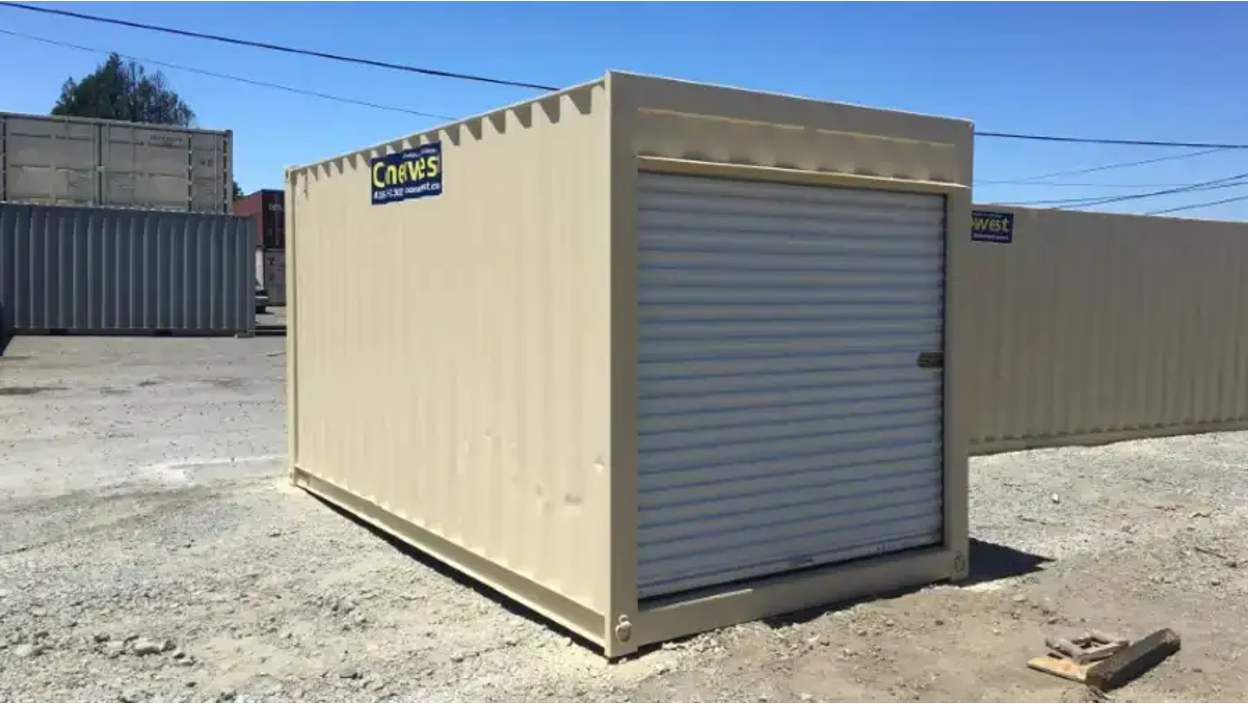Oklahoma Shipping Container Zoning Laws, Permits & Building Code Requirements
Get a quoteOklahoma Shipping Container Zoning Law, Permit & Building Code Guide
Key Takeaways
- Shipping containers in Oklahoma require permits and must comply with local zoning laws and building codes.
- Zoning regulations vary depending on the area - residential, commercial, or industrial.
- Permitting involves submitting detailed plans and can be easier in rural areas compared to urban settings.
- Consulting with local authorities and professionals can simplify compliance and help you avoid costly mistakes.
- At Conexwest, we are a trusted shipping container provider - delivering all over the US.
Shipping Container Zoning Laws, Permits, & Building Code Requirements In Oklahoma
Zoning Laws
In Oklahoma, shipping containers are regulated by zoning laws that determine where you can place them:
- Residential Zones: Many towns and cities don’t allow shipping containers as permanent structures in residential areas. For example, in Norman, you can’t repurpose containers for permanent use in neighborhoods, but they’re fine in commercial and industrial areas if they meet its aesthetic rules.
- Commercial and Industrial Zones: These zones are more flexible. Containers can be used for storage or even as part of a business, as long as they meet local building and safety standards.
Permits
Most places require permits for shipping containers, and the type depends on how you plan to use them:
- Permanent Use: You might need a conditional use permit for permanent placement. This could mean placing the container behind existing buildings, meeting design standards, and not using it as a home.
- Temporary Use: For short-term uses like construction or storage, permits are usually simpler. Time limits often apply - like up to 180 days in Seminole - and you’ll still need to follow local codes.
Building Code Requirements
To keep things safe and sturdy, shipping containers must follow building codes. Here are the basics:
- Foundation: Most places require containers to be anchored to a concrete foundation or something equally solid.
- Safety Standards: Containers need to be wind-resistant and watertight - especially important in Oklahoma’s storm-prone areas.
- Hazardous Materials: You can’t store hazardous materials in containers, due to federal safety rules (49 CFR).
Examples from Different Municipalities
- Containers aren’t allowed as permanent structures in residential areas.
- In commercial and industrial zones, they’re fine but must have masonry facades covering 80% of the exterior walls.
- Shipping containers are not allowed on residential properties unless used temporarily or approved with a conditional use permit.
- For permanent use, they must be placed behind existing structures and meet local design standards.
Conexwest, a leader in shipping and storage solutions based in Northern California, offers new, used, and refurbished containers from 10ft to 45ft, with fast delivery within 3–7 days and container fabrication options like adding shelves and locks. We serve over 10,000 customers nationwide, including prestigious clients like the U.S. Navy and Google. As an ISO 9001 and AWS-certified company, we ensure top quality and competitive pricing. |
Tips For Complying With Oklahoma’s Regulations

Complying with local regulations doesn’t need to be complex - we provide you with expert guidance.
1. Research Local Zoning Laws
- Figure Out Your Zone: First, check if your property is zoned as residential, commercial, or industrial. Containers are generally easier to approve in commercial and industrial areas.
- Consult Local Zoning Offices: Contact your local zoning office to get the exact details on what’s allowed where you live.
2. Get Your Permits in Order
- Apply Early: Don’t wait - start your permit application as soon as possible to avoid delays. For short-term uses like storage, you might only need a temporary use permit.
- Utility Permits: If you’re adding plumbing or electricity, be prepared to apply for separate permits for those systems.
3. Focus on Structural Integrity
- Use Safe Containers: Make sure the container is in good shape and free from hazardous materials. Have it inspected before you buy.
- Foundation Rules: Follow local requirements for foundations. Larger containers (over 320 square feet) often need to be on a permanent base.
4. Blend in with the Neighborhood
- Match the Look: If necessary, paint the container to match nearby structures or property colors.
- Hide It Smartly: Use landscaping or fences to keep the container out of public view, especially in residential areas.
5. Check with Your HOA
- Know the Rules: If your property is a part of a Homeowners Association, check their guidelines. They might have specific restrictions on containers.
- Get Approval: If needed, submit your plans to the HOA before moving forward.
8. Document Everything
- Keep Records: Hold onto all your permits and any communications with local authorities for future reference.
- Take Photos: Snap pictures showing the container’s condition when it’s delivered and installed to prove you’re following the rules.
Read More: Guide to Build a Shipping Container Home or Apartment
Choose Conexwest For Your Shipping Container Needs

At Conexwest, we offer flat-rack, conjoined, and open-top containers.
We have every shipping container you could possibly need. Here’s why we are a class apart in the industry:
Comprehensive Selection of Containers
We have a wide range of containers to fit exactly what you’re looking for. Need something standard? Insulated? Refrigerated? Or maybe you’re dreaming up a customized container? We have it all with options from 10 feet to 45 feet in length. Each one is built tough and secure, perfect for anything from storage to creating a mobile office space.
Experts in Regulations
Shipping container rules vary from state to state - but thankfully, our team knows the ins and outs of local zoning laws, building codes, and permit requirements. We’ll help you with the process so your container is compliant and set up exactly where it needs to be.
Customization Options
What makes us stand out? Our customization options! Want windows? Need HVAC systems or special doors? No problem. Our skilled team can transform a standard container into a one-of-a-kind space that’s functional, stylish, and customized to your exact needs.
Backed by Warranty
Every container we sell is designed to stand the test of time. And, we back that up with a 10-year warranty on new ISO containers and 5 years for used ones. You can rest easy knowing your investment is protected and built to handle whatever comes its way.
Customer-Focused
We put you first. Our pricing is upfront - no hidden fees - so you can plan your budget without any surprises. Plus, our team is here to help with questions, advice, or anything else you need during your buying journey.
Frequently Asked Questions (FAQs)
- Do I need a permit for a temporary container?
Yes, in most cases, a permit is required for a temporary shipping container in Oklahoma so it complies with local zoning laws and building codes. The good news is temporary use permits are easier to obtain than those for permanent structures.
- How long can I keep a shipping container on my property?
The duration for which you can keep a shipping container depends on its use:
- Temporary Containers: Typically allowed for limited periods (e.g., 14 days in residential areas) with possible extensions.
- Permanent Containers: Must comply with local zoning laws and may require ongoing permits.
- Can I use a shipping container for residential purposes?
Using shipping containers as permanent residences is subject to strict regulations. Most municipalities require a building permit and adherence to local building codes for safety and structural integrity.
- What happens if I don’t comply with local regulations?
Failure to comply with local regulations can result in penalties, including fines or the forced removal of the container from your property.
- What services do you provide beyond selling containers?
In addition to selling shipping containers, we provide renting options for storage needs, customization services, delivery and hauling services, and repair services for damaged containers. We want to be your one-stop solution for all shipping container needs.
